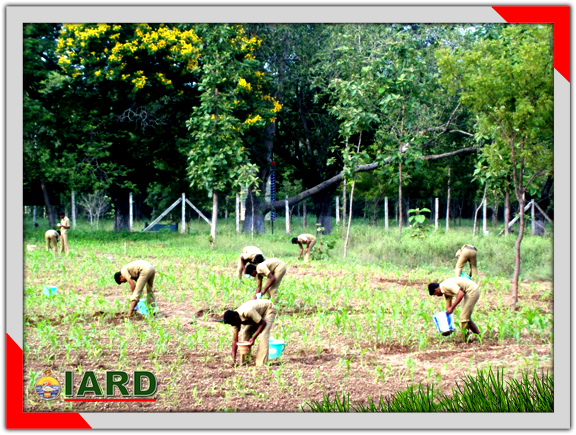Agronomy assumes significance in Agriculture as it is a basic subject to be taught to the students. The theoretical and practical aspects in Agronomy have been imparted to the students so that they can easily learn and understand the agronomic trends and technologies. The basic principles and concepts in agronomy are explained to the students. Students learn the various methods of land preparation, sowing, fertilizer application. Integrated Nutrient Management, Irrigation, weed management, Intercultural operations and harvesting of field and horticultural crops. Students are maintaining a permanent manurial plot and a crop cafetaria. Crop cafetaria is useful for the students to learn about the growth pattern of crops right from germination. Crop cafetaria consists of cereals, millets pulses, oilseeds, commercial crops and forage crops.
Students learn the principles as well as handling of instruments used for recording the weather elements in agro-meteorological observatory. Students study the importance of weather elements in weather forecasting and agro-advisories.
Students are trained to understand the principles and practices in field preparation and Irrigation methods such as surface, sub-surface and pressurized methods. They collect the seeds of field crops and maintain a seed bulk for raising in the crop cafetaria. They also collect the various wetland, gardenland and dryland weeds and prepare the herbarium of weeds. They practice the methods of herbicide spray in the experiential field. Students learn crop cultivation by doing themselves for which they are allotted a piece of land and they raise wetland and garden land crops to acquire practical knowledge and skills. Students are also taught about the seed to seed practices of field crops. They collect the seeds, manures and fertilizers and study their importance as well as nutrient contents. A field laboratory with tools and implements enable the students to study the usefulness of implements in tillage, sowing, weeding, and inter cultural operations. An Integrated Farming System (IFS) model help the students to learn the concept of improving the farm profit.
Different types of Nursery are available for field crops and tree crops. An Agro – forestry model helps the students to learn the significance and concepts in agro – forestry.
Farm ponds and percolation ponds available in the campus are useful for the students to learn about the importance of water harvesting. Various Dryland technologies are taught to the students. The students experiences the in-situ soil and water conservation by acquiring practice in the various land configuration methods. Students maintain a green manure plot for studying the different green manure crops and their usefulness. Field Trips are arranged for the students periodically to the Research stations, farms and agri-oriented enterprises to expose the students to varied cropping pattern, agro-climatic situation as well as to learn the latest agronomic technologies in the farms.
Laboratories
- Agro meteorological observatory
- Field laboratory / tools & implements
- Farm ponds / Percolation ponds


